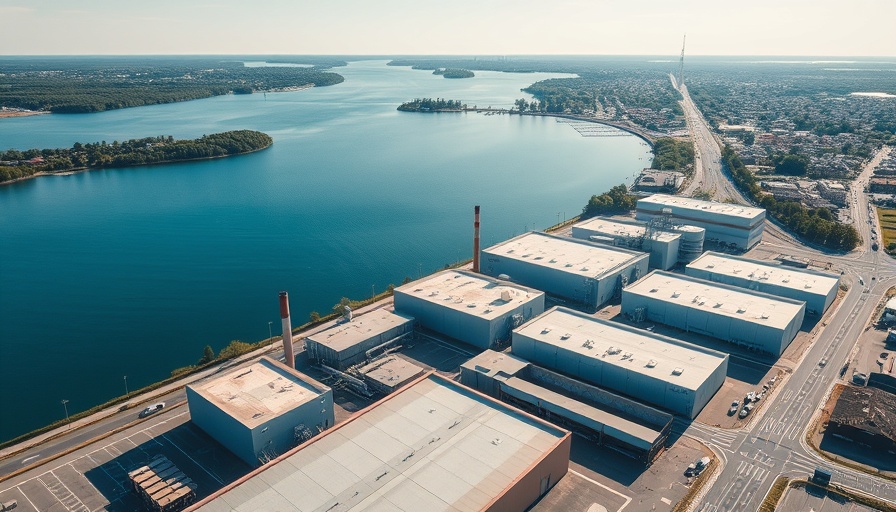
Michigan's Bold Move: Investing in Urban Renewal
Michigan has embarked on a significant revitalization journey by approving $290 million in public funding for two transformative city projects. The funding, aimed at rehabilitating blighted areas, will not only enhance the local economy but also improve living conditions in the affected communities. With a clear focus on repurposing outdated properties, Michigan's initiative showcases the state's commitment to creating vibrant urban environments.
Southfield and Muskegon Set for Transformation
The funding will facilitate two major developments: one in Muskegon and the other in Southfield. In Muskegon, the project will breathe new life into seven dilapidated manufacturing buildings that occupy 15 acres of land along the lakeshore. This revitalization aims to create 571 residential units, including apartments and condominiums, along with commercial spaces that will contribute to a thriving community.
Meanwhile, Southfield is poised to transform eight vacant acres into a bustling downtown area featuring 577 housing units and retail spaces. This strategic location is not just about construction; it represents a vision to create a cohesive urban center that melds seamlessly with existing developments, such as office towers and city offices. The Southfield City Centre aims to enrich the community and enhance economic opportunities.
A Win for Local Development
This funding decision underscores the state’s confidence in the Transformational Brownfield Plan, which allows developers to recoup a significant portion of their costs through tax revenues generated by the projects. The Michigan Strategic Fund, which unanimously approved these initiatives, recognizes that these investments will serve as a catalyst for broader economic growth.
Engaging Local Residents
The implications of these projects extend beyond mere numbers; they represent the promise of improved quality of life for residents. New housing options will cater to diverse populations, and the inclusion of commercial spaces will foster local businesses, potentially generating jobs and stimulating economic activity. As construction begins, local residents can look forward to a revitalized landscape that reflects their community's needs.
Future Predictions: A Brighter City Landscape
One cannot overlook the long-term impact these transformations may have on Michigan's urban fabric. As more cities across the nation explore transformative projects, Michigan’s success could serve as a powerful case study illustrating the benefits of investing in urban renewal. With active participation from local stakeholders and residents, these developments can pave the way for more inclusive and dynamic communities.
Ensuring Effective Implementation
For the success of these projects, transparent communication and active engagement with the community will be crucial. As development proceeds, stakeholders must maintain a dialogue with locals to ensure their needs and concerns are addressed. This inclusive approach will not only foster trust but also inspire residents to take pride in their transformed neighborhoods.
As Michigan moves forward with its ambitious urban renewal plans, the blend of residential and commercial spaces in Muskegon and Southfield presents a unique opportunity for other localities looking to develop similar projects. With commitment and collaboration, the future looks bright for Michigan’s urban communities.
 Add Row
Add Row  Add
Add 




Write A Comment